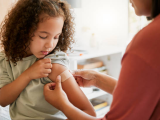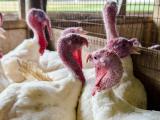Dec 18, 2012
WHO confirms Egyptian, Indonesian H5N1 cases
In a sketchy monthly update, the World Health Organization (WHO) yesterday confirmed an H5N1 avian flu case in a 2-year-old Egyptian girl earlier this month and an H5N1 death in a 4-year-old Indonesian boy that local media had reported this week. The few details that the WHO provides about the girl, from Demietta governorate, are confusing. The agency lists her date of illness onset as Dec 3, but it also says she was hospitalized on Dec 1. It says she received oseltamivir (Tamiflu) on Dec 4 but doesn't specify whether she has recovered. Her case is Egypt's 11th this year, 5 of which have been fatal, according to WHO data. The Indonesian boy, from West Java, became ill Nov 30, was hospitalized Dec 5, and died Dec 6, the agency said. Indonesia has now confirmed nine H5N1 cases this year, all fatal. The two countries lead the world in 2012 H5N1 cases, with Vietnam, at four cases, reporting the third-highest number. Since 2003, the WHO has confirmed 610 cases, 360 of which (59%) have been fatal. The WHO's previous update was Nov 5. The agency recently said it would report global cases monthly.
Dec 17 WHO update
Dec 17 WHO global H5N1 case count
Hong Kong panel recommends H5N1 vaccine for certain lab workers
Hong Kong's Scientific Committee on Emerging and Zoonotic Diseases of the Centre for Health Protection (CHP) recommends that certain lab workers at higher risk of exposure to avian influenza H5N1 virus receive prepandemic H5N1 vaccine to protect them from infection, the CHP said today. Eligible workers include those involved in large-scale production or manipulation of the virus, extended work on the virus, experiments with antiviral-resistant strains, or work with strains "with the potential for increased transmissibility in mammalian species." The vaccine of choice should be a locally registered prepandemic vaccine that is based on the currently circulating strain and has shown cross-reactivity to other clades, the agency said. Researchers and other experts from around the world met yesterday and today in Washington, DC, to discuss how to move forward with experiments involving mammalian-transmissible strains of H5N1.
Dec 18 CHP statement
Dec 17 CIDRAP News story on Washington meeting
ECDC leaders say Europe needs better flu vaccines to boost coverage
In a commentary, two leaders of the European Centre for Disease Prevention and Control (ECDC) say more-effective seasonal influenza vaccines are needed to increase vaccination coverage, especially among high-risk groups and healthcare workers. The article, published yesterday in the Lancet Infectious Diseases, was written by Angus Nicoll, MB, CBE, head of the ECDC Influenza and Other Respiratory Viruses Programme, and ECDC Director Marc Sprenger, MD, PhD. They note that a meta-analysis published last year in the same journal showed that seasonal vaccines had low effectiveness in vulnerable groups. Further, a European flu surveillance network in April reported 43% effectiveness for flu vaccines in risk groups during the 2011-12 season: "Poor performance of the seasonal vaccines undermines Europe's other strengths in influenza prevention," Nicoll and Sprenger write. "We need safe and effective vaccines that will encourage their use by vulnerable individuals, patients, doctors, nurses, and the authorities." They add that an ECDC review and a recent report from the University of Minnesota Center for Infectious Disease Research and Policy (CIDRAP) agreed that almost all current vaccines use old technology, that there is little incentive for innovation, and that investigation of improved vaccines is now "faltering." All parties need to examine why the vaccines don't work better and agree on what improvements are needed, Nicoll and Sprenger assert. Meanwhile, existing vaccines are still the best single flu-prevention measure, and their use should be strongly advocated, they conclude.
Lancet Infect Dis commentary
Related Dec 18 ECDC notice


















